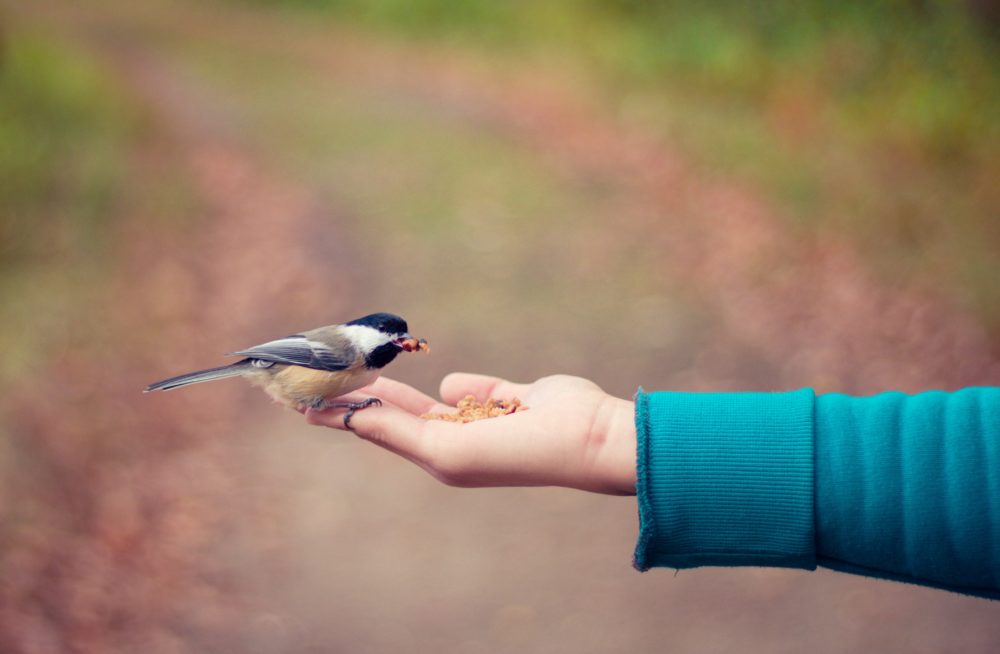The Buddha taught that the path of Right Intention was threefold: the intention of renunciation, good will, and harmlessness. In today’s post we’re going to look at Right Intention as good will.
When we cultivate good will, we expand our lovingkindness to all. And one way we can begin is by noticing our ill will. Where are we withholding lovingkindness?
Bhikku Bodhi says ill will can manifest either as anger or aversion. Anger makes obvious sense, of course. When we’re mad, we don’t wish the best for the person/situation that made us angry. And often, we let these feelings of anger take us down like a tidal wave. Which…does not make the anger go away. It usually creates a new set of problems to go along with our original anger.
Aversion can manifest as hostility, revulsion, or displeasure. In all cases, it’s an act of turning away from someone or something. That’s the opposite of good will! Not to mention, when we turn away, we put ourselves in a position to get clobbered by what we refuse to face. Eventually, that stuff is going to make itself known. (Sometimes this means it affects others; but more often, it makes itself known in our own bodies and minds and hearts.) So there’s something avoidant about aversion. And that can get us into trouble, too.
When we attack in anger or turn away in aversion, we lose sight of our connection to others. We reject belonging. So you can see how these two reactions can be described as at the heart of ill will. They breed it.
When I see ill will creeping up, it’s usually in response to:
- feeling threatened and lashing out
- feeling self-righteous or haughty, and wanting to feel or be seen as “above” someone or something
- being jealous or envious
- imagining someone else having ill intentions and reacting negatively to it (even though we rarely, if ever, know another person’s intentions)
In each of these situations, a sense of fear or lack is at work. Often, reimagining those feelings with an intention for lovingkindness can reorient us in a profound way. I think this explains why some Buddhist teachers describe ill will as blocking pure perception. When we’re so caught up in our negative emotions, we get lost in the emotional mess and can’t perceive what’s really going on.
To cultivate good will, the Buddha suggests that we practice metta, lovingkindness toward all. The word derives from the same word as friend, so it means a kind of friendliness. But I like to translate it as lovingkindness because too often, we hear friendliness and we think it means nothing more than being “nice.” Metta means FAR more than that! When we practice lovingkindness for all, we truly desire the well-being of everyone and everything. (High bar, I know.)
As we practice, it’s important to remember that metta is a natural state. In our core selves, we naturally exhibit and feel lovingkindness for others. So we aren’t trying to create a feeling that’s alien to us. We’re trying to get back to a feeling at our very center. This isn’t to say it’s easy! Metta meditation takes dedicated practice, because we get so bombarded with ill will both within ourselves and all over the place in culture. But with practice, we can grow in our care and concern for all others.
This week, consider giving metta meditation a try. (I offer brief instructions below.) Save the words below to your phone or put a sticky note on your mirror. Don’t get too ambitious. Just start with a few minutes of growing your circle of lovingkindness and care.
Also, consider this question: where are you withholding lovingkindness?
METTA MEDITATION
- Use the phrases below as mindful prayer.
- Begin by praying them for yourself. Then continue the phrases while imagining a loved one, then a neutral person, then (if you feel ready) someone you find difficult. Close by holding a desire to send lovingkindness to all.
May I be safe.
May I be happy.
May I be at peace.
***
May s/he be safe.
May s/he be happy.
May s/he be at peace.
***
May all be safe.
May all be happy.
May all be at peace.
This post is part of my Eightfold Path project. Read all the posts on this month’s step, Right Intention, here.




